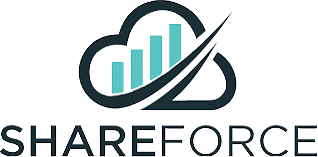An employee incentive plan is a compensation structure that rewards and encourages staff to work harder and achieve specific goals. Through incentive plans, businesses can increase retention rates, reward valuable staff, increase productivity, maximise profits, achieve company-set objectives and encourage staff to invest more in the organisation’s success.
Incentive plans give employees the right to receive a reward under certain conditions set by the company, either in the form of a cash bonus or a stake in the company (via shares). These plans are often referred to as “grants”, “awards”, or “schemes” and go beyond the paycheck for hours worked.
Types of Employee Incentive Plans
Broadly speaking, companies that have incentive plans in place tend to make use of Short-term Incentive Plans (“STIs”) or Long-term Incentive Plans (“LTIs”) or a combination of the two. Depending on the jurisdiction of the issuing company, they need to comply with accounting standards for reporting, including International Financial Reporting Standards (“IFRS”) or Generally Accepted Accounting Principles (“GAAP”). Complying with financial reporting standards is an integral consideration when designing and issuing incentives.
STIs are granted to employees to achieve short-term business goals within an annual, quarterly, or monthly period, usually resulting in a cash payout based on goals achieved within a year or less. In terms of financial reporting, cash-settled STIs fall within the rules of IAS 19 Employee Benefits under IFRS or ASC 715 under the rules of GAAP.
LTIs reward employees (typically senior management and executives) with cash or shares in company stock for meeting long-term company-set goals (usually more than 3 years), including retention. These goals encourage staff to stay with the company and have a vested interest in its long-term success. LTIs based on the company’s share price or equity value must adhere to the Share-based Payment standard under IFRS (specifically IFRS 2) or ASC 480, ASC 718 or SAB Topic 143 under the rules of GAAP.
Also read: Share-Based Payments: IFRS vs GAAP Comparison
Setting up Optimal Plans
Careful consideration and strategic planning are essential when creating incentive compensation plans. An ineffective plan that falls short of expectations could actually push valuable employees out the door. As a result, key stakeholders should invest time and attention when crafting these important programs and consider elements such as vesting time frames, the method by which these awards will be settled (in cash or equity), participant rights and other complex aspects.
When structuring an incentive plan, Benefits and Compensation managers and company decision-makers should consider several driving forces to determine the performance targets employees need to achieve to benefit from these plans and the types of incentive plans that will best motivate employees and drive value. The performance targets are formulated considering a business’s industry, current economic climate, what competitors are doing, work environment, the level of staff the company wants to retain and other internal metrics.
Setting Performance Targets
Performance targets are a crucial component of a plan’s terms and conditions, and they play a pivotal role in the success of a plan, and it’s important to recognise the significance of setting the optimal goals.
Performance targets may constitute a combination of individual targets, such as KPIs, or team-based or company goals (such as achieving financial targets) in which a group or organisation’s performance is assessed. These may be measured over the short-term or long-term and may even reference the performance of a publicly traded company’s market share price against competitors’ share prices.
Distinguishing between market or non-market performance conditions?
Financial reporting standards refer to “market” and “non-market” performance conditions, and it’s important to understand the jargon.
A market performance condition is a condition that is referenced to the publicly traded company’s share/stock price or the total market return (“TSR”) of the publicly traded company measured over a period of time (often measured against other listed peers). There are several mathematical ways to measure market performance, including on an absolute or relative basis, a ranking basis, or the percentile basis, but let’s ignore the complexity for now…
Conversely, a non-market performance condition is not directly related to the market performance of a share price. These will include individual employee-specific targets such as KPIs, corporate performance targets such as quantitative company financial earnings levels or corporate objectives which include corporate goals, such as environmental, social, and governance (“ESG”) goals.
Ongoing Plan Management
When an organisation considers implementing an employee incentive plan, some important best-practice guidelines can aid in keeping incentive processes organised, especially considering the complex performance targets it needs to manage. One to consider is investing in a specialised incentive plan management tool that can track and automate variations of a company’s incentive plans.
Choose a tool that aids in award administration, valuation, accounting calculations, design and testing of plans, report generation for various departments, employee communication, HR and payroll system integration, and automation, which does all the heavy lifting.
ShareForce’s Role in Incentive Plan Management
ShareForce’s incentive plan management technology brings automation and simplicity to managing your equity or cash-based employee incentive plans. ShareForce makes managing and tracking employee incentives easy while ensuring incentive plan management best practice is followed.
If you’re interested in learning more about ShareForce, book a demo by filling in the form below or visit www.shareforce.net/contact



